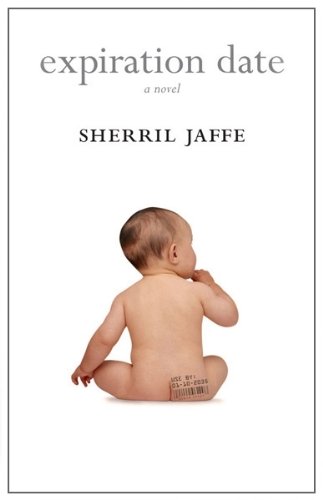Review: Expiration Date, by Sherril Jaffe
 |
Expiration Date
By Sherril Jaffe
200 pgs
$28
April 2011
|
One day, twenty-four years ago, Flora had a dream that she would die before she hit sixty years old. As she approaches what she believes to be her final birthday eve, she begins to wonder if her mother, still alive, kicking, playing bridge, traveling and having sex at 87 years old, is staying alive to fend off her daughter’s angel of Death. As Muriel lives her second life with, first, her “boyfriend” Wilbur and then her boyfriend Gene, Flora finally begins to see what life past 60 can hold, defying the decree handed down to her so many years before. It’s a kind of coming of age story, but with an unusual age set.
While mostly straightforward, the narrative was somewhat at odds with itself – at once in Flora’s mind, then jumping to Muriel’s almost as if they were the same person in two separate bodies, at different stages of life – which could have been the point. But the jump in perspective is a little unwieldy, as the author seems to side with one over the other.
For example, Muriel is very critical when it comes to just about everyone, especially her daughters. Flora, as a victim of this criticism is a sympathetic character, but Jaffe repeats one specific criticism so often that it seems her point was not to portray Flora as sympathetic but to see her as flawed and in need of her mother’s criticism.
I personally felt affronted by Muriel’s opinions on quality of life and one’s weight and some of the casual jabs at “the other” may have been flippant on the author’s part, but they were no less hurtful. In the end, I believe we’re meant to empathize with Muriel, but I found her cold and unkind. Had the author meant for this to happen, perhaps there would have been some kind of revelatory moment wherein she realizes how callous she can be. Instead, the revelation goes to Flora who is perhaps the one character least in need of an alteration of perspective.

Comments
Post a Comment
Any and all feedback is welcome - thanks for taking the time!